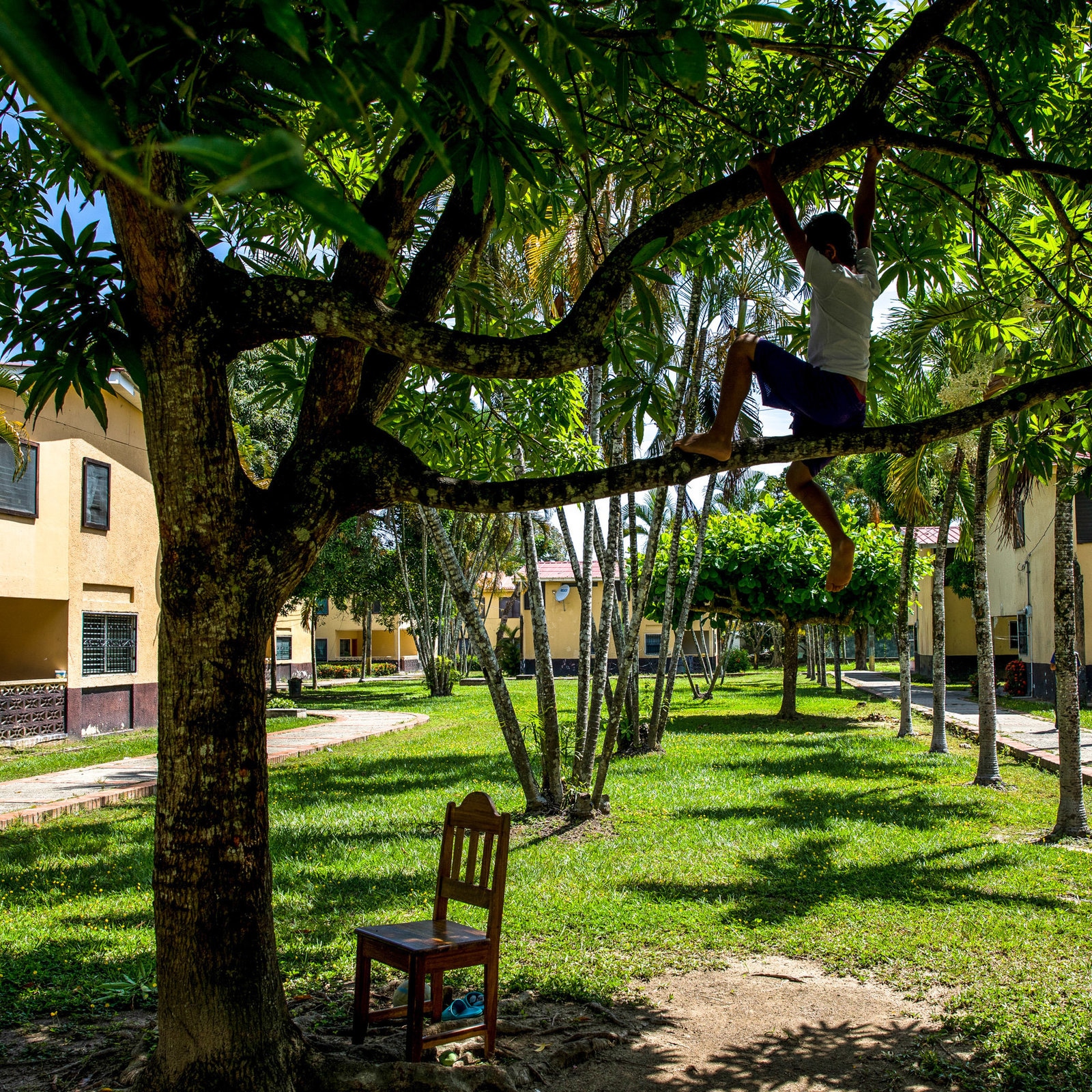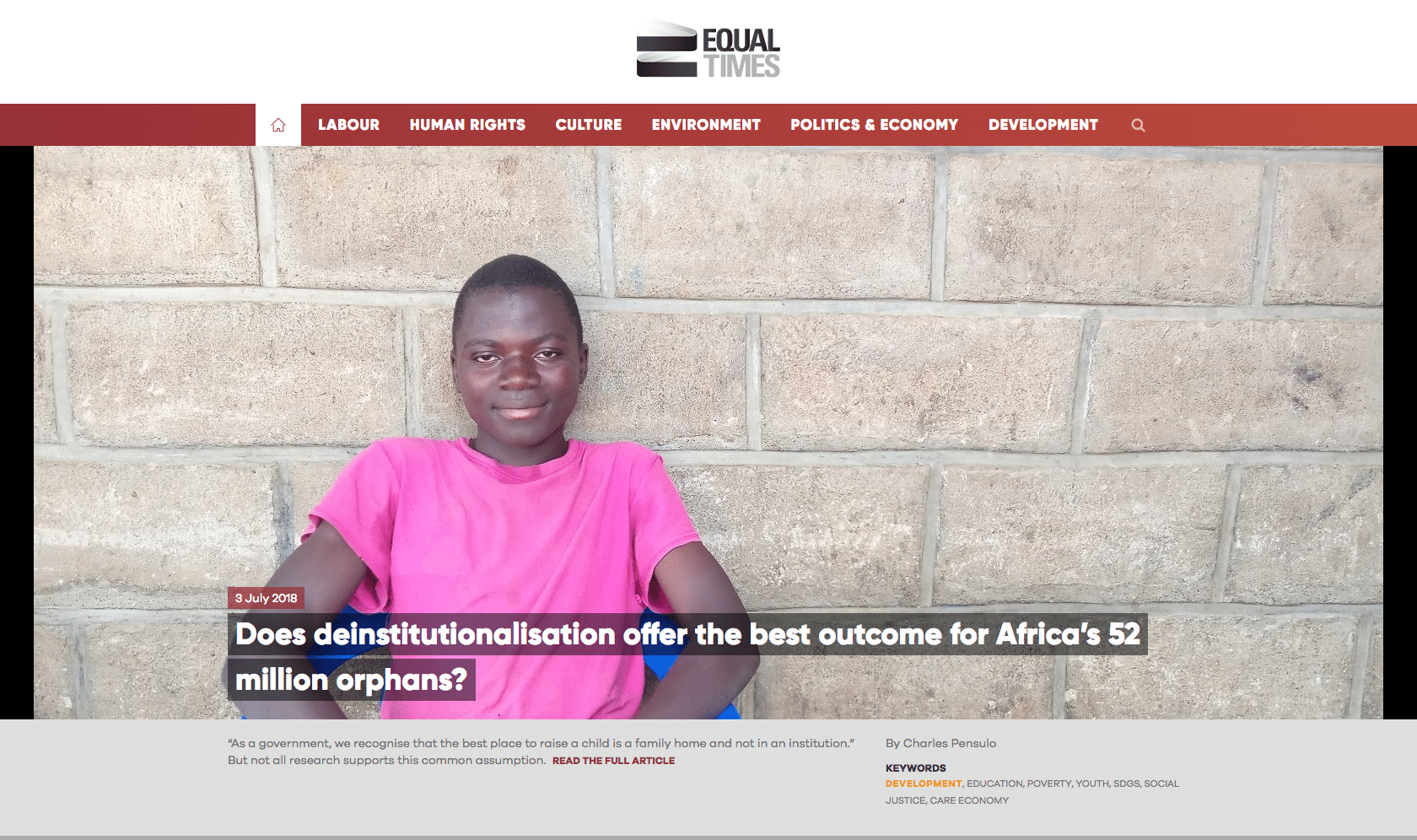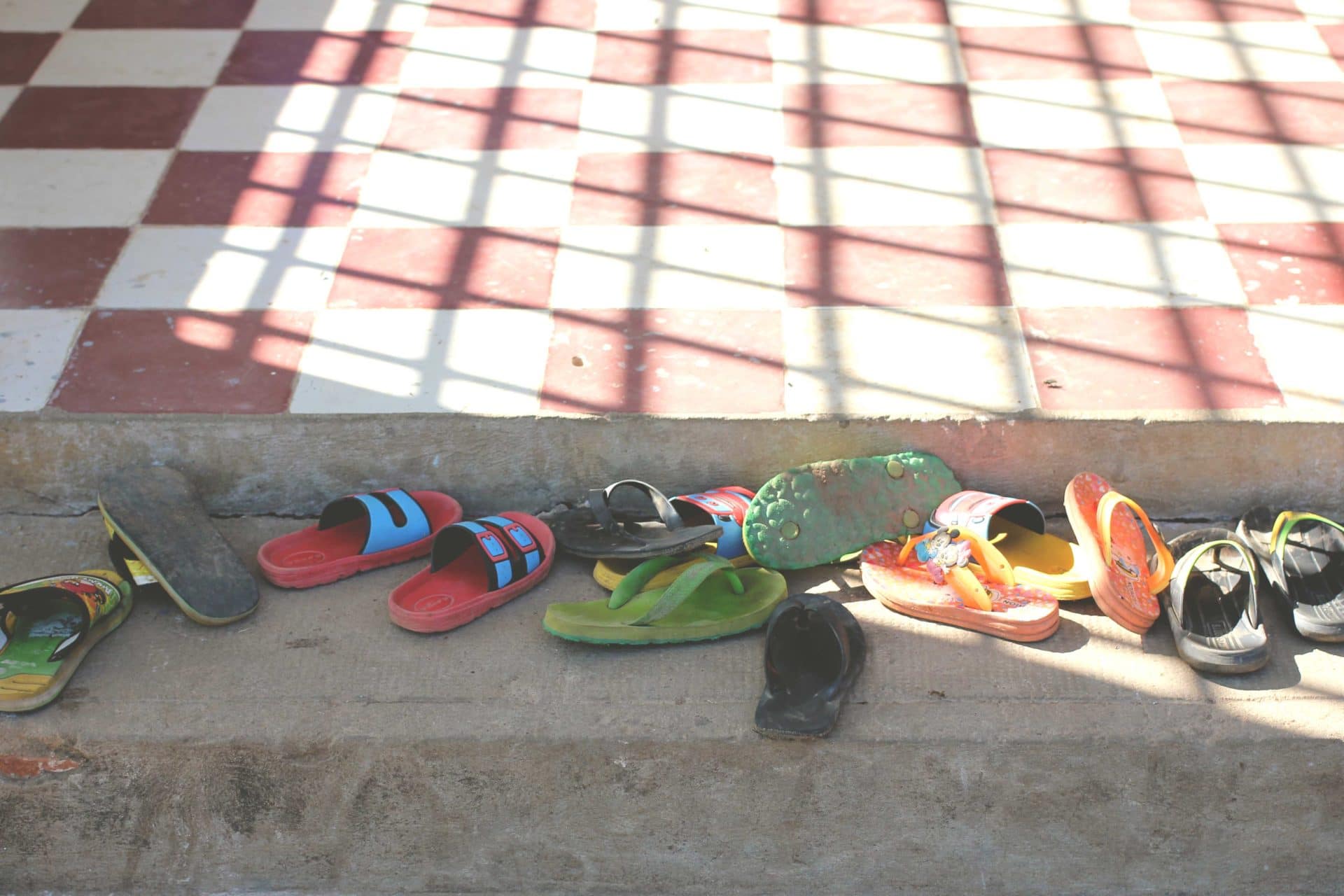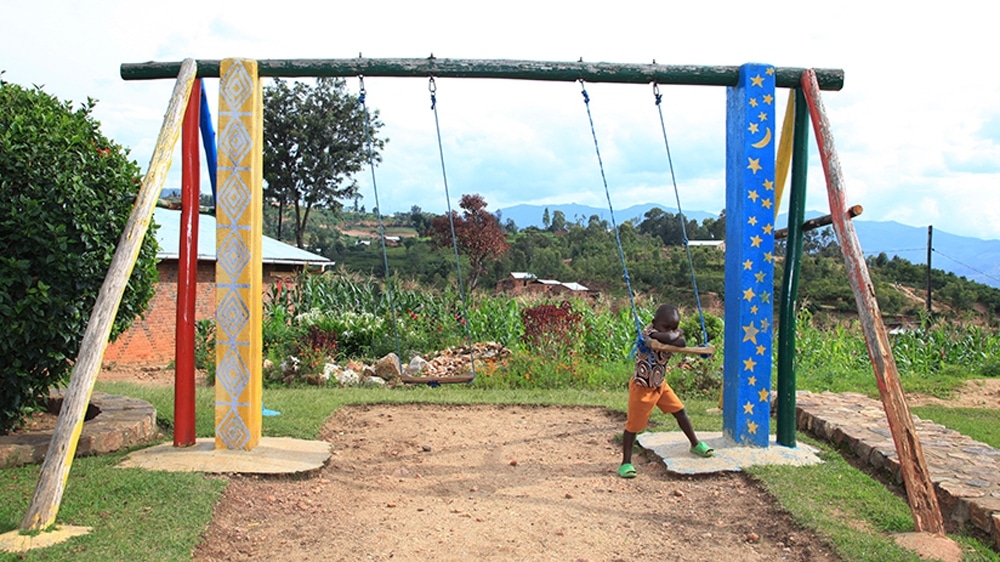“Regardless of whether they’re placed with extended family members or in institutions, the researcher’s found that the one thing the children need is a stable living situation. They don’t do well if they’re bounced from one place to another. Having consistent long-term caregivers and steady sibling-like connections to other kids is also important.
‘So creating a family-like environment is what is really important,’ Whetten says. ‘And that can happen in a family setting in a small home or it can happen in an orphanage slash institution slash group home like SOS.'”
Continue reading
Journalist, Charles Pensulo, wrote a comprehensive article for “The Equal Times” about deinstitutionalization in Malawi and interviewed Dr. Kate Whetten about findings from the Positive Outcomes for Orphans (POFO) Study:
Speaking to Equal Times, Whetten adds: “There is no NIH study of older children that has found that they do poorly in orphanages or institutions. All of these rigorously peer-reviewed studies have found that children in need do as well or better in orphanages relative to family settings, and that orphanages can be the place where children who are going to drop out of school, have severe emotional difficulties and learn no job trade, are able to thrive.”
Continue reading
In 2005, Kathryn Whetten, director of the Center for Health Policy and Inequalities Research (CHPIR), and her colleagues set out to examine predictors of physical and emotional well-being, cognitive development, relationship outcomes and achievement outcomes for a cohort of more than 3,000 orphaned and separated children (OSC) living in five low-income countries (Cambodia, India, Ethiopia, Kenya and Tanzania).
Fourteen peer-reviewed papers, dozens of conference presentations and 12 years later, the “Positive Outcomes for Orphans” (POFO) project is still ongoing. Whetten, the principal investigator, was recently awarded a third round of funding for the project—a five-year, nearly $2.8 million National Institutes of Health grant.
Continue reading
Radical decision to close down country’s 34 institutions has been fraught with difficulties.
“Kathryn Whetten, a professor at Duke University in the US, followed 1,357 children in institutions, and 1,480 in families in Ethiopia and Tanzania, to compare the effect of living in orphanages with family care.
Whetten published her conclusions in the scientific journal PLOS ONE in 2014, saying that without substantial improvements in care and support, placing children back with families will not significantly improve their welfare.”
Continue reading





